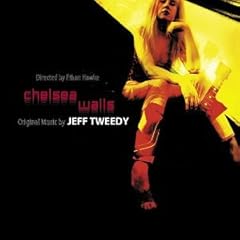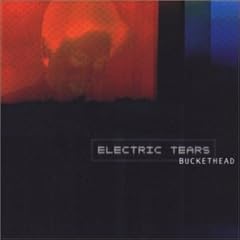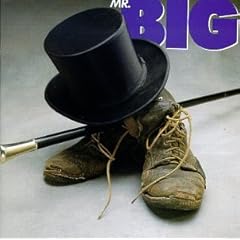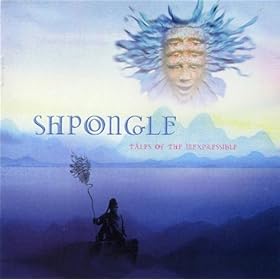MP3s are nothing new in 2009. In fact, they’re boring. Most of us have probably been using them since middle school, ripping CDs to our computers and creating a digital music collection that allowed us to listen to our music anywhere, any time, and in any order. We smiled with joy as we looked over our iTunes libraries; no more weighty CD collections to lug around and have stolen!
But what if we missed something? What if we overlooked the peculiarity of being able to listen to multiple tracks by multiple artists out of sequence from their original album format? Maybe we lost something when we all went digital.
Of course, mixing songs into a playlist is not new. Radio stations have been doing it for close to a century, DJs have been creating personal mixtapes for some decades now, and compilation albums have been sold by the millions. All of these examples, however, work under some sort of restriction - radio has but a small sample of radio singles to choose from, and compilation CDs and mixtapes, at least good ones, were arranged and mastered to make a pleasurable holistic listening experience. The tracks were mixed and matched, yes, but usually by a professional with a greater theme in mind.

The mass marketing of CD burners brought to us the ability to create a personal mixtape, and we as a society entered a transitional period where we still conscious of our partaking in the deconstruction on the musical “album,” but, excited by the newfound ability to share custom mixes with friends, staved off thinking about potential consequences.
We often think that new technology can only bring good things, when in fact the introduction of any new technology results in a dynamic give-and-take process. As author Neil Postman writes in his book
Technopoly,
“Technological change is neither additive nor subtractive. It is ecological...One significant change generates total change. If you remove caterpillars from a given habitat, you're not left with the same environment minus caterpillars: you have a new environment, and you have reconstituted the conditions for survival; the same is true if you add caterpillars to an environment that had none.” (p.18)
MP3s weren’t just a new player in the music environment for which CDs had to make room. They weren’t a new form of the CD. They not only allowed you to pick and choose which songs off your CDs you wanted to listen to, but they redefined how music is made, marketed, and consumed. MP3s made possible online music download stores like Napster, iTunes, and AmazonMP3. For the first time, buying just the single off an album was available to the masses.
This had a profound impact on the whole music market, but in particular on the pop, rap, and rock genres. It pushed them away from making a solid cohesive album and towards focusing more on producing a catchy hit single. In more and more cases now, the album is just used to market the single. Overall quality can suffer, because a successful single will sell a mediocre album. Consider a hypothetical example of Lady Gaga:
Suppose her latest single, “Bad Romance,” was released on the Internet and reached the ears of 50 million fans (about twice the population of Texas) who sent a link to nine friends each, exposing 500 million to a really catchy hit single. Now, if a mere 20% of those people bought the single, Lady Gaga would make $100 million. If just 1% of those who bought the single went on to buy the (mediocre) supporting record,
The Fame Monster, it would go platinum.

This is simple math, and online music distributors like Apple want to get as big a piece of market pie as they can. The more copies of “Bad Romance” that iTunes sells, the more money Apple makes. It is Apple’s best interest, then, as music marketers, to shape the listener’s consumption habits in a way that will make them more accepting of singles. The sale of the album would just be a bonus. The seamless integration of iTunes with the iTunes Store (introduced in version 4) fosters this acceptance. (That iTunes is marketed as music management software is a telling sign. Managing a few hundred CDs? Not that hard. Managing a couple thousand singles? Well, for that you need a computer program.)
Starting in version 4.5, iTunes had a feature called Party Shuffle (now renamed iTunes DJ), an option that let you to listen to your entire music library in random order. This feature was not new
per se, as the hundred-disc changers of the 90’s often included such features, but it did take that idea into the realm of the virtual music library.
In iTunes 8, however, a whole new feature called
Genius was added. The idea behind Genius was to take the wisdom of crowds, the collective listening preferences of all iTunes users, and harness it to make recommendations, in the form of playlists, to individual users. One could pick any track in his or her library, hit the “Genius” button, and iTunes would compile a playlist culled from the entire music library based on the listening habits of users with similar tastes. It’s an interesting idea, but only useful if you want to listen to music without context or continuous narrative; in other words, a collection of singles. But not all music, obviously, is singles.

If I’m listening to the first movement of Beethoven’s Eighth, the odds are astronomically higher that I would want to finish the whole symphony rather than skip to Mozart to Handel to Haydn to Liszt. The same can be said about any track off of Radiohead’s
OK Computer, Steely Dan’s
Aja, Devin Townsend’s
Infinity, or any other album that provides a seamless listening experience from start to finish.
The iTunes Genius in itself is not a bad thing, but it is important to realize that not all music falls under it’s umbrella. Apple is out to make money, and selling more singles results in more money. Cultivating a userbase who is accepting of these singles, then, is the
raison
d'être
of Genius. From this viewpoint, that iTunes is pushed as a music jukebox for everyone, when in reality it has several features (iTunes DJ, Genius, the Store) that, at least in my view, clearly promote the consumption of commercial-radio-friendly music, is disconcerting.
We are no longer in an environment with caterpillar MP3s; we now have mature, elegant, butterfly music distribution systems. For those who enjoy the endless parade of pop singles, this is a welcome paradigm shift. For others, like me, the marriage of music marketing to the shaping of consumption habits is a reason to be wary. If continuous exposure breeds familiarity, then using iTunes could result in a decline in demand for holistic album experiences. If diversity in music is to be preserved, it is important that we be aware of technology’s subtle influence on artistic expression.
 (Image from paradigmshiftstudio.com)
(Image from paradigmshiftstudio.com)
Thankfully, there are those who are aware and involved in a movement to keep the album experience alive. My friend
Dan has extensive experience with the underground metal community, and writes,
“[T]here has been a big push in the underground communities (both in metal and alternative/indie music) to refuse to allow their albums to be released on iTunes, with many bands choosing even to release albums on vinyl (Bon Iver and The Raconteurs come to mind at the moment for good examples of this). I also know that many underground punk bands have been doing this for years, with some of them at the dawn of the 90's even resisting the rise of the CD by using vinyl. Examples of this are The Circle Jerks, Lars Fredrikson and the Bastards, as well as Helmet.”
The Raconteurs, of course, are one of Jack White’s - the man notorious for still recording on reel-to-reel machines - side projects. I still can’t tell if he uses those machines for legitimate musical reasons or just to separate himself from the pack by generating a faux-nostalgia over archaic equipment. Regardless, he is indeed known as a staunch proponent of vinyl. I wrote an article
a while back about the resurrection of vinyl, and, judging by Amazon’s vinyl Hot Releases page, it seems that vinyl is still doing pretty well. It’s worth noting that the irony of Lady Gaga’s album being available on vinyl is not lost on me.
Vinyl or no vinyl, the countermeasures taken by bands against the MP3 takeover succeed only because of the Internet, the very device that exacerbates the problem. This is the ecosystem which must be balanced. One one side we have singles dominating popular music, and on the other we have bands who resist and sell their albums to dedicated fans via a website. The masses who want the singles are appeased, and the fans, equally, have a place to gather. It is these fans, with their chant of “A new delivery method doesn’t render an old one invalid!”, who are crucial in maintaining that the two live in harmony. For just like Huxley warned in
A Brave New World, the danger lies not in our old system being dominated and forcibly repressed, but in it being appraised and portrayed as useless and thus discarded.
So keep your MP3s, iPods, and iTunes. And keep your CDs and LPs. Find the unique contributions of each one and maximize them. For they are not only important as storage mediums, but as representations of a consumer mindset. Make room in your musical ecosystem for both, and enjoy the fullness that each brings to the diversity and taste of the music market.
_DZ













